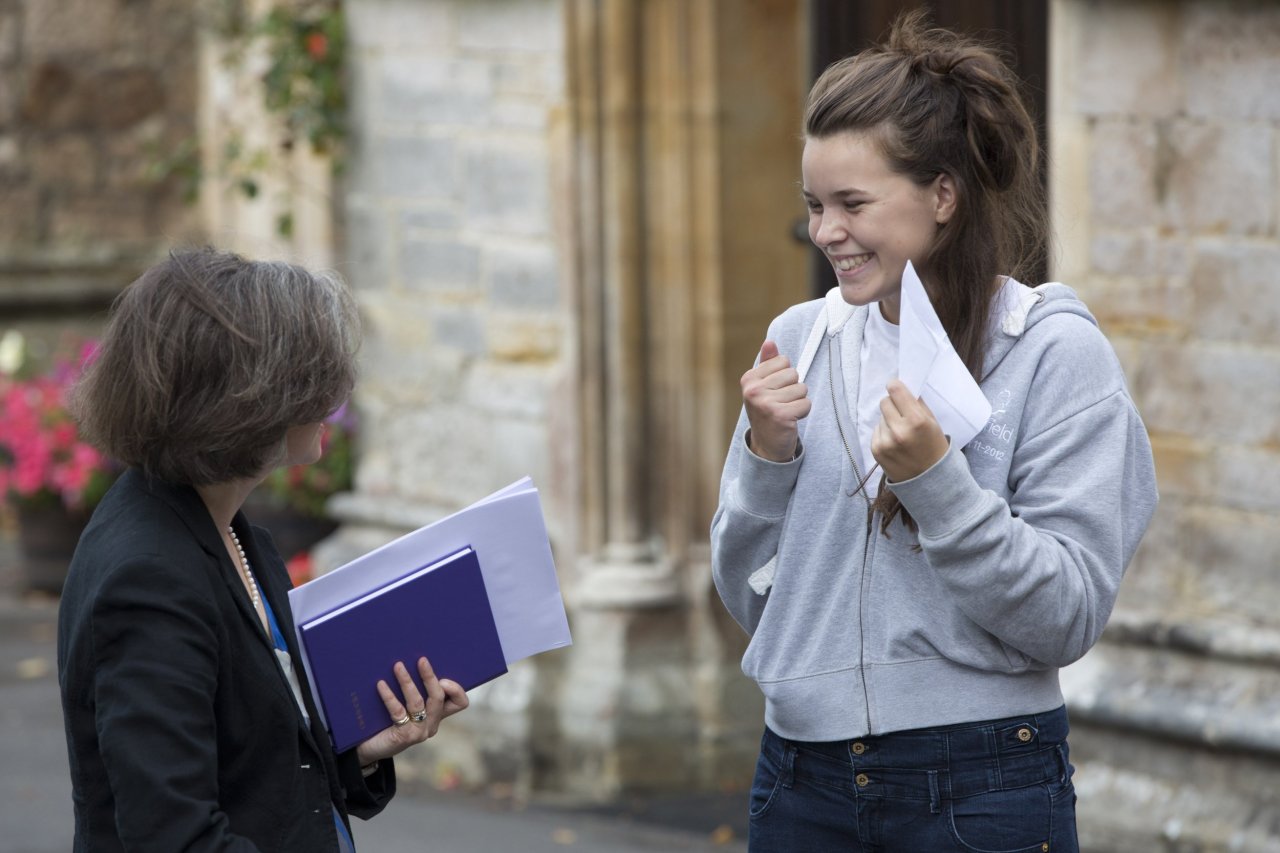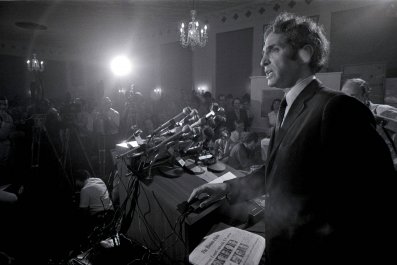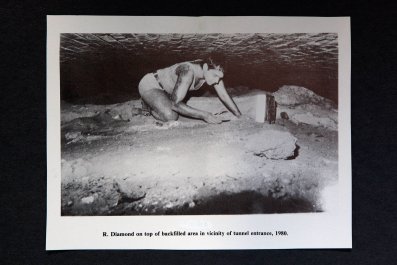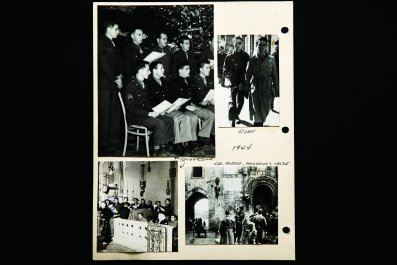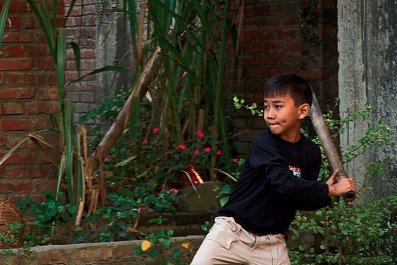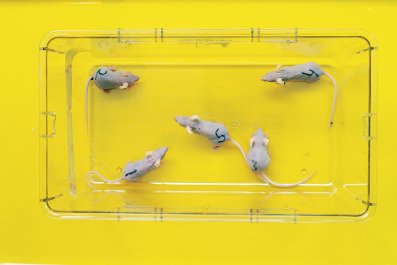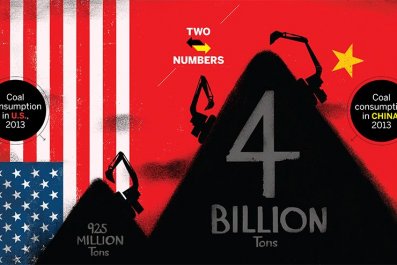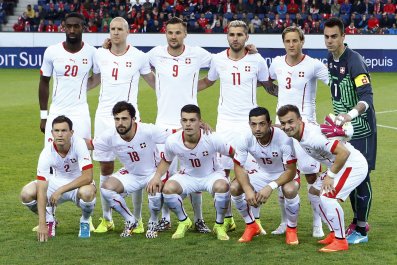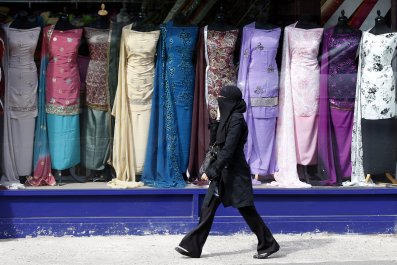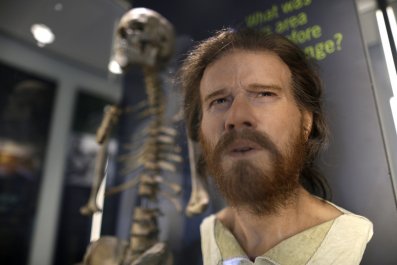"I am not omniscient, but I know a lot," says Mephistopheles to Faust in Johann Wolfgang von Goethe's masterpiece. Knowing that their charges can't learn everything, educators around the world face the dilemma of what, exactly, to teach them. Now Britain's education secretary, Michael Gove, has brought this constantly simmering debate to the boil by calling the country's literature exams too easy and advising the country's secondary school exam board to include more British authors at the expense of American ones.
Although Gove says he hasn't banned any writers, he complained in a newspaper article last week that in one recent year "280,000 candidates studied just one novel for the [literature exam]. The overwhelming majority of them (more than 190,000) studied Of Mice and Men. Most of the remaining pupils studied other 20th-century texts including works such as Lord of the Flies. The numbers studying novels written before 1900 – Pride and Prejudice, Far from the Madding Crowd and Wuthering Heights – were tiny in comparison, around 1% of the total."
Secondary school pupils reading just one novel is sad state of affairs indeed. As Jane Austen wrote in Pride and Prejudice: "How much sooner one tires of any thing than of a book! – When I have a house of my own, I shall be miserable if I have not an excellent library."
A Department for Education spokesperson says that in the past, "English Literature GCSEs [exams] were not rigorous enough and their content was often far too narrow" and goes on to explain that the new guidelines don't "ban any authors, books or genres. It does ensure pupils will learn about a wide range of literature, including at least one Shakespeare play, a 19th century novel written anywhere and post-1914 fiction or drama written in the British Isles."
With his intervention, Gove has – rather dramatically – brought attention to the contentious issue about what, exactly, schoolchildren should read. "This is a debate that goes on constantly, and sometimes it flares up", explains Dr Susanne Wiborg, a Danish-born reader in comparative education at the University of London's Institute of Education. "Educators are trying to answer two different questions: which knowledge does a child need? And what should be passed on to the next generation?"
There's a third aspect that often conflicts with those two goals: the desire to instil in children a joy of reading. "In the final years of schools I think one should read important works and world literature, but in the years before that, it should be books that inspire you to read more", reflects Hannah Schubert, a 17-year-old German currently doing an exchange year at a secondary school outside London. In her British school, she has read Pride and Prejudice ("boring"), two Shakespeare comedies ("make you laugh") and The Yellow Wallpaper, a short story by the 19th-century American feminist Charlotte Perkins Gilman. Last year, at her school outside Dresden in eastern Germany, she read Faust; German 19th-century author Theodor Fontane's novella The Rider on the White Horse; the drama Nathan the Wise by 18th-century German writer Gotthold Ephraim Lessing; and 20th-century Swiss writer Friedrich Dürrenmatt's novel The Judge and his Hangman.
The sticking point is not just how elevated the mandatory school reading should be, but also how much it should reflect the country in which the pupil lives. While Gove wants to promote literature from the British Isles, the average high-achieving Czech 15-19-year-old pupil reads Fyodor Dostoyevsky's Crime and Punishment and Umberto Eco's The Name of the Rose alongside works by Czech writers like Milan Kundera and Bohumil Hrabal.
"European countries differ to an extreme degree, and in some countries different parts of the country even take different approaches", explains Dr Theo Witte, a senior lecturer in teacher training at the University of Groningen in the Netherlands. "In the Netherlands, foreign authors are typically not mandatory reading in schools, whereas Germany and Belgium, for example, take a much more inclusive approach to foreign literature." Witte, who specialises in the teaching of literature, also serves as editor-in-chief of the comparative literature website Literary Framework.
Bavaria, Germany's top-achieving state in pupil achievement, requires schools to teach only one book: Faust. "Our curriculum consciously leaves the teachers plenty of latitude in their selection of books", the state's education minister, Dr Ludwig Spaenle, tells Newsweek. "Together with their pupils they can explore German works as well as – in translation – foreign-language literature. What's more important than a book's place of publication is its content, because in literature one is always exposed to central questions concerning human existence." And according to Spaenle, exposure to literature from different cultures is as important as exposure to works from different epochs: "It brings young people into contact with different world views, and thus it promotes appreciation for other standpoints and perspectives." The reason Bavarian children read a large amount of German literature, he adds, is simply due to the sheer volume of German-language works.
As in Bavaria, in most countries today teachers have a large degree of liberty in choosing books and authors. "Gove's approach is very top-down and very nation based, whereas in the Nordic countries, for example, teaches now decide on their own what to teach", explains Wiborg. "That's a change from the past, when governments prescribed much more in detail what should be taught. Of course there's sometimes a discussion, but no education minister has ever intervened in the way Gove did." In Finland, Europe's top-scoring country in pupil achievement, the government simply identifies the types of literature that should be taught and the skills they should produce.
But like its fellow Nordic countries, Finland is keen to highlight its literary heritage. Of the 10 literary works read by a high-achieving Finnish teenager, five are by Finnish authors. "Literature is different from many other subjects because it has political connotations, so the guidelines often shift when there's a new government," notes Witte. "And with small languages, there's the additional need to protect the language." In other words, if Finnish schools don't teach the epic poem Kalevala, who will ensure it's passed on to future generations? For Pride and Prejudice the equation looks rather different.
France, despite facing fewer concerns about the survival of its language, focuses heavily on French literature, whereas Italian schools readily teach Miguel de Cervantes and Fyodor Dostoyevsky alongside Dante Alighieri and Primo Levi. Rossana Cavalleri, a Milanese mother of a 15-year-old and an 18-year-old attending a science-based secondary school, lists their literature requirements: each year one part of Dante's Divine Comedy along with other Italian works and foreign literature, decided by the individual teacher. "I think it's adequate", she reflects. "But the kids read because they're forced to."
Indeed, the current challenge is to make teenagers read literary works addressing weighty issues when they're more used to consuming 140-character missives. "Faust was pretty dry, but I definitely realise it's an important work," reports Hannah Schubert.
Many a teacher may quietly recite Franz Kafka's assertion, in The Trial, that "it's only because of their stupidity that they're able to be so sure of themselves" before going on to teach the book, a perennial favourite at European secondary schools.
And academics, while not approving of Gove's tactics, say he's on target in identifying teenagers' declining reading habits as a serious concern. "Part of the problem is that schools now assign more teaching hours to language instruction than to literature", explains Witte. "In the Netherlands, the percentage of school time dedicated to literature has decreased from 30% to 20% in the past 10 years."
With the education system facing pressure to prepare children for the labour market, not philosophy, such a cut is understandable. But Spaenle argues that literature is very useful knowledge, even for 21st-century careers: "An aesthetic education that's as wide and deep as possible, including in the area of literature, can give children and teenagers plenty of stimulation as their personalities form, and as a result it contributes to a solid basis. And stable personalities are off to a better start at university and in their careers." Witte reports that in the Netherlands there's now a growing momentum for once again giving more space to literature.
Dostoyevsky was rather more pessimistic than Goethe's devilish protagonist Mephistopheles, proclaiming in War and Peace that "we can know only that we know nothing. And that is the highest degree of human wisdom." Vaclav Havel, the pre-eminent poet-prince of modern times, voiced similar concerns, writing to his wife that "the tragedy of modern man is not that he knows less and less about the meaning of his own life, but that it bothers him less and less."
The heart of the debate Gove has catapulted himself into, then, is not where an author was born but whether his or her works promote their young readers' mental development. And teachers are keen to have their voices heard. "Literature is definitely a national debate that each country should have", argues Wiborg. "But there should be an institutional arrangement for making the decision democratically."



